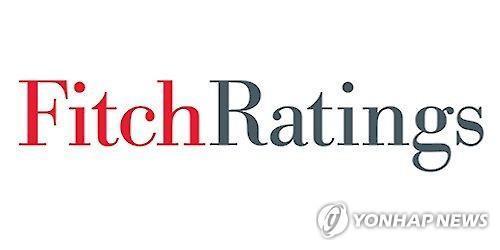Global credit appraiser Fitch Ratings has substantially slashed its growth outlook for South Korea‘s economy this year to 2 percent, citing weaker underlying momentum.
The latest forecast, contained in its global economic outlook report posted on its website Monday, represented a sharp downward revision from its previous forecast of 2.5 percent in February. Fitch said the South Korean economy would grow 2.6 percent in both 2020 and 2021.
The South Korean economy expanded 2.7 percent in 2018, down from a solid 3.1 percent the previous year.

Fitch blamed slowing exports and sluggish investment for its downward revision.
South Korea’s exports fell 9.4 percent on-year to US$45.9 billion in May due mainly to a fall in chip prices and the weak Chinese economy. It was the sixth consecutive month that outbound shipments had declined.
“Korean exports have been under pressure since the second half of 2018, affected by the slowdown in China and rising trade frictions, which exacerbated the cyclical downturn in the memory chip sector,” Fitch said.
The price of semiconductors -- one of South Korea‘s main export items -- has plummeted sharply since late 2018, squeezing the profit margins of Samsung Electronics Co., the world’s largest memory chip maker, and its smaller rival, SK hynix Inc.
Fitch said sharp increases in the minimum wage over the past two years have hurt business sentiment and weighed on margins, while firms have cut back capital expenditure sharply.
South Korea raised its minimum wage to 7,530 won ($6) per hour in 2018, up 16.4 percent from 2017. The minimum wage was raised a further 10.9 percent on-year to 8,350 won per hour in 2019.
Critics claim the minimum wage hikes have increased the burdens on businesses, especially microbusiness owners and the self-employed.
Fitch said it expects South Korea‘s GDP growth to pick up pace to 2.6 percent in both 2020 and 2021, adding that growth should recover from the second half of the year, helped by the rollout of new fiscal measures to spur domestic demand and support job creation.
The rating agency also said South Korea’s central bank could cut interest rates by 0.25 percent soon, citing muted inflationary pressure and a slowing economy.
Earlier this month, Bank of Korea Gov. Lee Ju-yeol stressed the need for “appropriate measures” to deal with changes in economic conditions, a comment widely seen as hinting at a potential rate cut.
In May, the central bank left the policy rate unchanged at 1.75 percent.
South Korea‘s first vice finance minister, Lee Ho-seung, said the government is pushing to revitalize the economy through large-scale corporate investment and additional investment in the public sector.
Lee made the comment in a meeting with officials on how to boost South Korea’s global competitiveness.
In May, the International Institute for Management Development (IMD) said in its annual report that South Korea ranked 28th in terms of world competitiveness among 63 countries surveyed, down from 27th the previous year.
The IMD is a Switzerland-based organization that releases annual competitiveness rankings based on a country‘s economic achievements, infrastructure, and government and corporate efficiency. (Yonhap)




![[Herald Interview] 'Trump will use tariffs as first line of defense for American manufacturing'](http://res.heraldm.com/phpwas/restmb_idxmake.php?idx=644&simg=/content/image/2024/11/26/20241126050017_0.jpg)

![[Health and care] Getting cancer young: Why cancer isn’t just an older person’s battle](http://res.heraldm.com/phpwas/restmb_idxmake.php?idx=644&simg=/content/image/2024/11/26/20241126050043_0.jpg)

